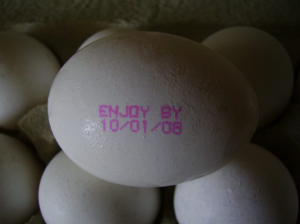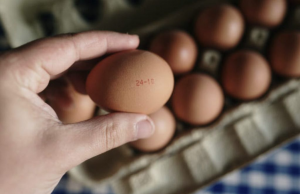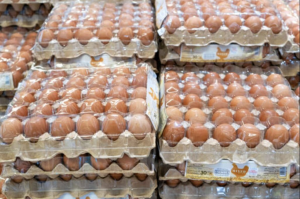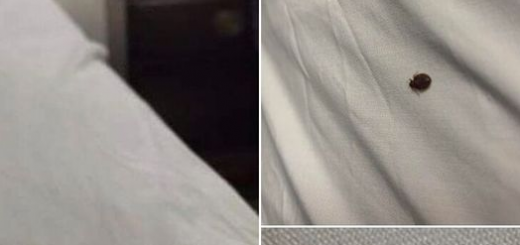Mark this date on your calendar—it’s not just any expiration date. After years of working in grocery stores, I’ve noticed that most people buy eggs without paying attention to this crucial detail.
As an egg lover, there’s a certain joy in cracking an egg, whether it’s for a fluffy omelet at breakfast, a cake in the afternoon, or a quick fried rice for dinner.
While I sometimes get eggs from the farmer’s market, most of the time, they come from the supermarket in those standard cartons.
Over the years, I realized that understanding the codes on these cartons is not just a quirky hobby but a necessity.
Have you ever noticed the numbers on your egg carton and wondered what they mean? They might look like a secret code, but they’re straightforward once you know what to look for. Let me break it down for you.
The Julian Date: Your Egg’s Birthday
One of the most important codes is the three-digit number, known as the Julian date. This number represents the day of the year when the eggs were packed, from 001 (January 1) to 365 (December 31). For example, if you see 001 on the carton, it means the eggs were packed on January 1st. A code of 365 means December 31st. Simple, right? I remember the first time I cracked this code—I felt like Sherlock Holmes solving a culinary mystery. Knowing the Julian date is like having the password to a club of egg enthusiasts who value freshness.

The Packaging Plant Code: The Source of Your Eggs
Next to the Julian date, you’ll find a code starting with the letter ‘P’. This is the plant code, indicating where the eggs were processed. This information is crucial, especially in case of an egg recall. It helps you quickly identify if your eggs are affected, ensuring the safety of your breakfast table.
Why This Matters
You might wonder why this is important. A few years ago, there was a massive egg recall due to salmonella contamination. I remember panicking, unsure if the eggs in my fridge were part of the recall. But then, I checked the Julian date and plant code, and thankfully, my eggs were safe. Understanding these codes gave me peace of mind during that stressful time.

Freshness and Expiry: Eggs Don’t Last Forever
These codes also help you keep track of egg freshness. Eggs are safe to consume up to 30 days from the packing date if stored correctly. I’ve made it a habit to check the Julian date as soon as I get home from the store, jotting it down and calculating when they should be used. This simple practice ensures I always have fresh eggs, enhancing the taste of every dish I prepare.
Quality and Safety: Beyond the Dates
While the Julian date and plant code are essential, there are other markings to look for on the carton. The USDA grade shield, for instance, indicates that the eggs meet specific quality standards. Grade AA eggs have thick whites and firm yolks, perfect for frying or poaching, while Grade A eggs are slightly less firm but still great for cooking and baking.
Organic and Pastured Eggs
If you prefer eggs from free-range chickens, look for terms like ‘organic’ or ‘pastured.’ Organic eggs come from chickens fed organic feed and not given antibiotics. Pastured eggs are from chickens that graze and eat natural food, making the eggs more delicious.

Bringing It All Together
One Saturday morning, I decided to make an omelet. I checked the Julian date on the carton and saw that the eggs were packed just a week ago—fresh and perfect. I cracked a few into a bowl; the yolks were vibrant and dense, a clear sign of freshness. I whisked them with some milk, salt, and freshly ground pepper, then poured the mixture into a hot skillet with foaming butter. The omelet rose beautifully, and I filled it with sautéed mushrooms and cheese before folding it over. It was the best omelet I’d made in ages, and I’m convinced the fresh eggs made all the difference.
Conclusion
Next time you’re holding a carton of eggs, take a moment to decipher the codes. It’s not just about knowing the Julian date and plant code—it’s about ensuring the quality and safety of the eggs you consume. From morning scrambles to evening bakes, understanding these numbers can elevate your egg game. It’s a small but enjoyable part of the culinary experience, and who wouldn’t want to learn something new while having breakfast?




























